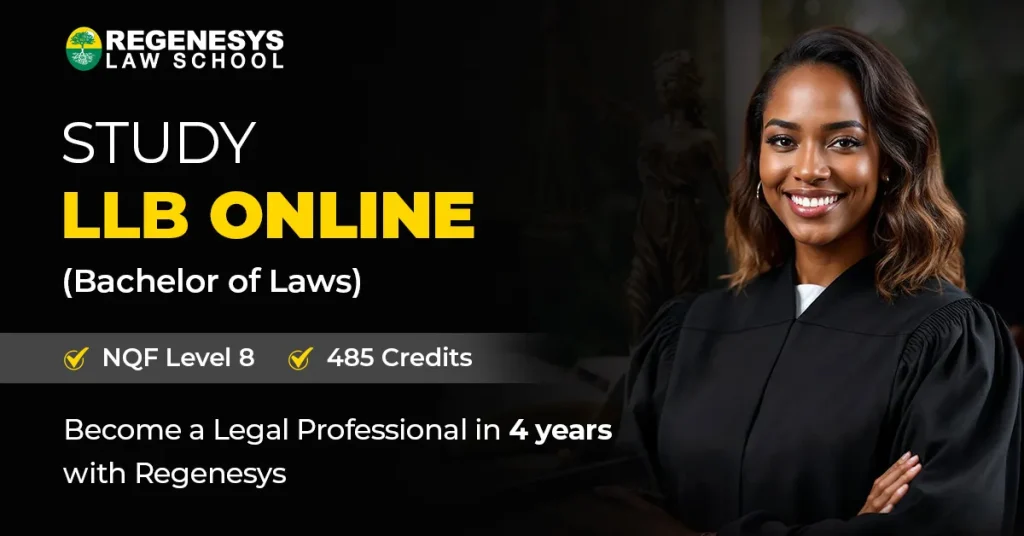Embarking on the journey to law school can be an exhilarating task. With so many law schools, choosing the right one that aligns with one’s academic goals, career aspirations, and personal preferences can be daunting.
In this article, let us discuss the crucial factors that must be considered to make informed decisions and navigate the path to a successful legal career in South Africa.
Table of Contents
- The Journey to Law School
- Exploring Law Schools in South Africa
- Navigating the Legal Landscape: A Comprehensive Guide to Law Schools in South Africa
- Conclusion
- FAQs – Frequently Asked Questions: Navigating the Legal Landscape: A Comprehensive Guide to Law Schools in South Africa.
- 1) What legal skills will I develop in the Bachelor of Laws Degree programme?
- 2) Is practical experience included in the Bachelor of Laws Degree programme?
- 3) Can graduates with a Bachelor of Laws Degree pursue postgraduate or higher studies?
- 4) What are the Career Advantages of Pursuing a Bachelor of Laws Degree programme?
- 5) What is the programme structure of Regenesys Law School’s Bachelor of Laws Degree programme?
The Journey to Law School
Embarking on the journey to law school involves rigorous preparation and unwavering determination. Prospective law students must dedicate countless hours to studying for the LSAT, a crucial component of the application process. Achieving a competitive score is imperative for gaining admission to top-tier law schools. Additionally, crafting a compelling personal statement that showcases one’s unique experiences and motivations is essential. Securing solid letters of recommendation from reputable sources can further bolster one’s application.
Therefore, the path to law school demands meticulous planning and a relentless pursuit of excellence.

Exploring Law Schools in South Africa
Law schools in South Africa offer comprehensive legal education to prepare students for a career in law. These institutions provide a rigorous curriculum covering various aspects of the legal system, including case law, statutes, and legal theory.
Graduates of South African law schools are equipped with the knowledge and skills needed to practice law in the country. Additionally, many law schools offer specialised programmes and clinics to give students practical experience in different areas of law.
Thus, law schools in South Africa play a crucial role in producing competent legal professionals who contribute to the country’s legal system.
Some of the top law schools in South Africa include:
- Regenesys Law School
- University of Pretoria
- University of Cape Town
- University of Johannesburg
- University of Witwatersrand
Navigating the Legal Landscape: A Comprehensive Guide to Law Schools in South Africa
Navigating the legal landscape and choosing the right law school is a crucial step for aspiring legal professionals.
Here is a comprehensive guide and key factors to consider when choosing a law school in South Africa:
Location
Consider where the law school is located in terms of city, state, or country. Location can impact networking opportunities, internships, and exposure to specific legal systems.
Accreditation and Reputation
Check if relevant legal authorities or associations accredit the law school. Consider the school’s reputation, including faculty expertise, alumni success, and overall academic standing.
Programmes Offered
Look into the programmes offered and specialised certificates or diplomas. Ensure the programmes align with your career goals and interests.
Curriculum and Specialisations
Review the programme structure, curriculum, course offerings, and available specialisations. Choose a law school that offers programmes relevant to your desired legal field, such as corporate law, criminal law, human rights, etc.
Faculty and Resources
Evaluate the faculty members’ qualifications, research areas, and teaching methodologies. Consider the availability of resources like libraries, legal clinics, moot courtrooms, and technology for legal research.
Student Support and Services
Research students support services such as career counselling, academic advising, writing centres, and opportunities for networking, internships, and externships.
Bar Passage Rates and Employment Opportunities
Review the law school’s bar passage rates and employment statistics for graduates. Consider factors like job placement rates, types of legal positions secured by alumni, and connections with legal employers.
Tuition Fees and Financial Aid
Compare tuition fees, living expenses, and available financial aid options such as scholarships, grants, loans, and work-study programmes. Evaluate the RIO – return on investment regarding future earning potential versus educational costs.
Campus Culture and Diversity
Consider the available campus culture, diversity initiatives, student organisations, and extracurricular activities. Look for a supportive and inclusive environment that fosters academic growth, cultural exchange, and professional development.

Alumni Network and Success Stories
Research the law school’s alumni network, notable alumni, and success stories. Alumni connections can provide mentorship, job opportunities, and insights into the legal industry.
These are some factors that individuals need to consider when choosing a law school in South Africa. By carefully considering these factors and conducting thorough research, you can navigate the legal landscape effectively and choose the best law school to pursue your legal education and career aspirations.
Conclusion
Navigating the legal landscape and selecting the right law school in South Africa requires careful consideration of multiple factors, including location, accreditation, programmes offered, faculty expertise, student support services, and alumni networks.
Many law schools in South Africa bring unique strengths and opportunities for academic growth, practical training, and professional development.
Are you considering studying at a Law school in South Africa?
Regenesys Law School, South Africa, is a rapidly growing and prominent school.
Regenesys Law School offers an internationally recognised Bachelor of Laws Degree (LLB) designed to provide a well-rounded education that equips learners with the legal discipline’s knowledge base, theory, and methodologies and enables them to demonstrate initiative and responsibility in an academic and professional context.
Click here to learn more about Regenesys Law School, Bachelor of Laws Degree (LLB), programme features, curriculum and more.

FAQs – Frequently Asked Questions: Navigating the Legal Landscape: A Comprehensive Guide to Law Schools in South Africa.
1) What legal skills will I develop in the Bachelor of Laws Degree programme?
The Bachelor of Laws Degree programme aims to develop legal skills such as legal research, analysis, writing, and oral advocacy. Practical experiences, including moot court competitions and internships, contribute to skills development.
2) Is practical experience included in the Bachelor of Laws Degree programme?
Yes. The Bachelor of Laws Degree programme incorporates practical experiences, such as internships or clinical placements, which allow students to apply their legal knowledge in real-world settings.
3) Can graduates with a Bachelor of Laws Degree pursue postgraduate or higher studies?
Yes, graduates of the LLB programme may choose to pursue postgraduate studies, such as the Legal Practice Course (LPC) or Bar Professional Training Course (BPTC), depending on their career goals and jurisdiction requirements.
4) What are the Career Advantages of Pursuing a Bachelor of Laws Degree programme?
Pursuing a Bachelor of Laws Degree programme or an LLB degree offers many career advantages beyond the legal profession. The versatility of this degree allows you to explore diverse career options, while the high earning potential and strong skill set development make LLB graduates highly sought-after. The networking opportunities and intellectual stimulation you gain during your studies further contribute to your professional growth. So, an LLB degree could be the perfect choice if you’re considering a degree that opens doors to a rewarding career with endless possibilities.
5) What is the programme structure of Regenesys Law School’s Bachelor of Laws Degree programme?
The programme structure of Regenesys Law School’s Bachelor of Laws Degree programme is an NQF level 8 qualification with 480 credits. This is a 4-year qualification consisting of 37 compulsory modules and 4 electives.
Click here to learn more about Regenesys Law School, Bachelor of Laws Degree (LLB), and programme features.







